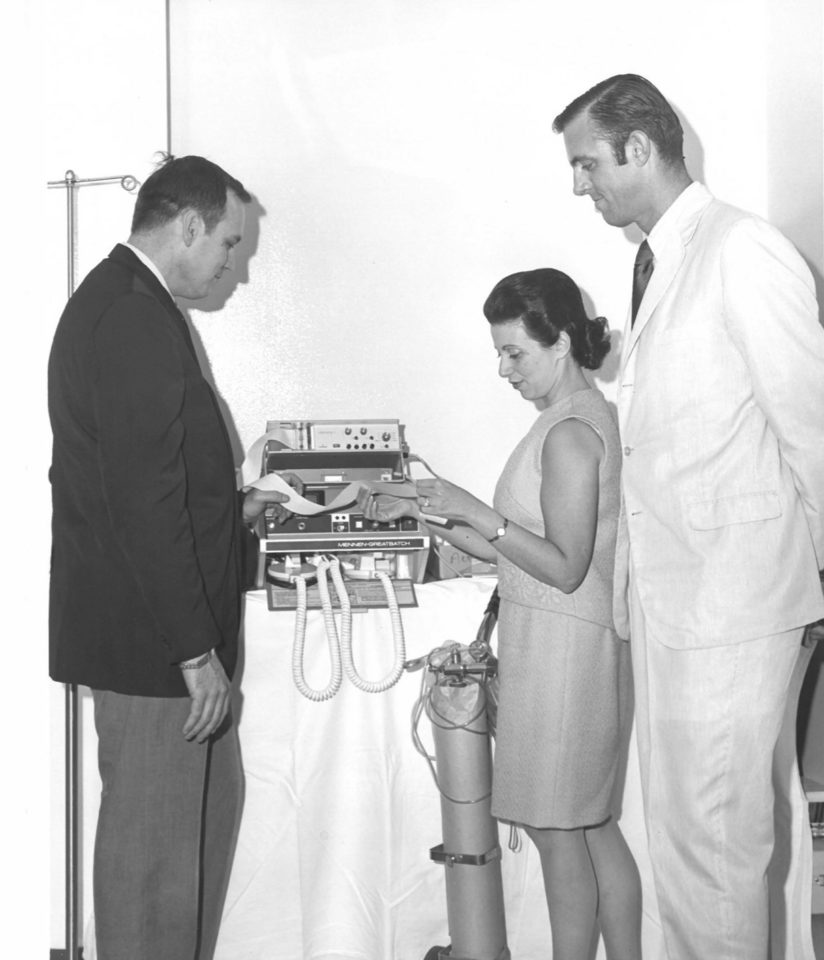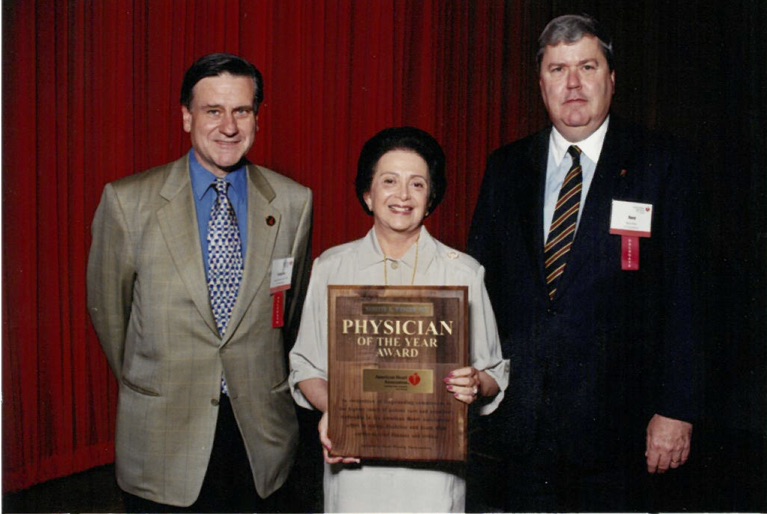
Nanette Wenger working on a research project through a NIH Grant in the 1970s.
She and her colleagues discovered that women have different heart attack symptoms than men — and that those symptoms were often dismissed or misdiagnosed by doctors. Wenger also found that coronary heart disease was the top killer of women. Forty years after being told by her professors that women weren’t susceptible to heart disease, Wenger published her findings, along with a call for more gender-specific cardiology research, in a landmark 1993 New England Journal of Medicine article that sparked a number of research and public health efforts — saving countless women’s lives.
Closing data gaps — and using the results to enhance patient care for women and men suffering from cardiac distress — is a common thread running through Wenger’s trailblazing six-decade career. Today, Wenger serves on the Women’s Heart Alliance Scientific Advisory Board, helping to encourage policymakers to fund and support women’s heart health research.
“My career shows that when large numbers of bright people get together and get the data that are shown to improve care, we can improve patient outcomes,” Wenger said.
Rethinking What Patients Need
Wenger’s research on cardiac care, like her research on women’s heart attack symptoms, has often challenged “common knowledge” about how to improve outcomes and save lives of people with heart disease. At a time when most cardiologists confined patients to prolonged bedrest after a heart attack, Wenger and her Harvard Medical School mentor Dr. Sam Levine began to ask patients who had just suffered a heart attack to sit in a reclining chair, rather than being confined to bedrest for six months. At the time, letting heart attack patients move around even a little was radical and counter to what the medical establishment believed was the best course of treatment.
But, at Harvard and later at Grady Memorial Hospital, the teaching hospital of Emory University in Atlanta, Wenger collected data showing that getting patients up and moving sooner helped them recover faster. The ripple effect of this research is felt in hospitals worldwide that now consider it standard procedure to have heart attack patients begin activity quickly.
“I felt very passionate about getting answers and asking questions,” Wenger said. “Doing that — and getting more people to do it — has allowed the field to advance.”
Nanette Wenger receives Physician of the Year Award from the American Heart Association, 1998.
And she continues to promote and conduct gender-specific cardiology research. She points to the connection between pregnancy complications and cardiovascular disease and the possibility that certain breast cancer treatments are linked to heart failure.
“The data gap for cardiovascular disease between men and women is closing, but we’re not there yet,” Wenger said. “Much work remains to be done.”
She’s excited to see what the next generation of cardiologists will do. Her message to them is simple: “Follow your passion and investigate anything you think needs to be investigated. That’s the key to improving patient outcomes.”
To learn more about Wenger, visit Emory University’s website.